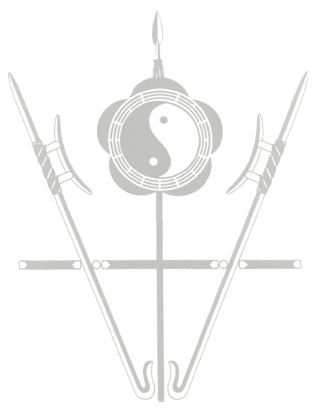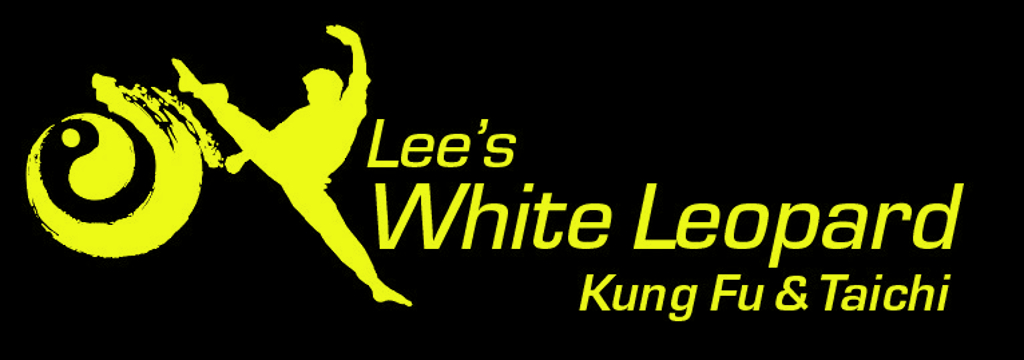White Leopard Kung Fu (白 豹 館) School began in September 1958 when Johnny Lee started learning My Jhong Law Horn Kung Fu (迷 蹤 羅 漢) from Grandmaster Yip Yu-Ting in Hong Kong.
Grandmaster Yip was a native of Chuong Hsien County in Hebei Province. He was one of the few truly great masters from the turn of the last century. Yip Yu-Ting was famous for his fighting and leaping abilities. He could leap over two ping-pong tables and in his early training days he would often grab hold of the tail of a horse and run along with it. In his twenties, during caravan assignments for Ever Victory Vanguard Company he was victorious in life and death challenges due to his fighting abilities. He was commissioned as the Chief Instructor of the Beijing Military Police, then later as Chief Instructor of the Manchurian army. In 1931 he resigned his military positions and taught in Shanghai Chin Woo. Two years later, he was transferred to Hong Kong, at the request of the South China Athletic Association, to teach My Jhong Law Horn as Head Instructor of the Shaolin class.
The fighting prowess of My Jhong Law Horn is based on mobility and deception, on timing, distance and multiple angles. Such an unpredictable combination will leave a defendant confused and vulnerable to My Jhong Law Horn’s deadly blows. After Grandmaster Yip brought the art from Northern China to the South, My Jhong Law Horn is now taught in Hong Kong, Canada and U.S.A. Many world and national champions are produced by Grandmaster Lee’s White Leopard Kung Fu School. For example, 1994 Beijing International Kung Fu Tai Chi Championship, 2002 World Chin Woo Tournament where we won 4 of the 5 gold medals, and in the 2006 World Traditional Kung Fu Championship in China the gold medal in Northern Kung Fu went to Lee’s White Leopard Kung Fu School.
Besides My Jhong Law Horn, the South China Athletic Association also offered a Wu Style Tai Chi class. This was Grandmaster Johnny Lee’s first introduction to Wu Tai Chi, which evolved from the teaching of Yang Lu Chan and his son, Yang Pan Hou. The distinguishing marks of the Wu Style teaching were developed by founder Chuan Yu, a Manchurian warrior, are the medium frame and plow oxen posture. These made Wu Style externally appear as small yet internally momentum travels a greater distance allowing one to easily divert incoming force and return with greater discharging force (fa-ching); a seemingly impossible feat from such a small external movement.
Wu Tai Chi was first introduced to general public in 1920. Grandmaster Wu Chein Chuan was invited to teach medium frame at the Beijing Athletic Research Society along with Grandmaster Yang Chun Fu and his brother, Yang Shao Hou, who were invited to teach big and small frame under the same roof. In 1930, Wu Chein Chuan went to Shanghai where he introduced the style and from there it spread to Hong Kong. In 1942, Grandmaster Wu Chein Chuan passed away, leaving three main bases upon which the tradition of Wu Tai Chi was transmitted.
Wu Chein Chuan’s early students, Wu Tunam and Chuan Zee Yee, influenced Beijing Wu Style. The other branch came down from Chuan Yu’s student Wang Muzhai and his disciple, Yang Yutang. The lineage continued in Hong Kong through Wu Kung Yee, the elder son of Wu Chein Chuan, and Wu Chein Chuan’s student Chain Wing Kwong. In 1950 in Hong Kong, Wu Kung Yee answered the formal challenge of a much younger White Crane Sifu in his prime and, despite his advanced age, Wu Kung Yee demonstrated the effectiveness and prowess of Wu Tai Chi fighting and is the only Tai Chi master in his level to have a formal record of effectiveness in fighting. In 1957, once again, Master Chain Ten Hung, nephew of Chain Wing Kwong, demonstrated Wu Style fighting ability in a public match in Taiwan, where he defeated a Taiwanese champion who was famous for his kicking. During the 1970’s in international full contact matches popular in Southeast Asia, again and again Wu Style 5th and 6th generation fighters have proven superiority by their victories in the ring.
Back in Shanghai, Wu Chein Chuan’s daughter, Wu Ying Hua, and son-in-law, Ma Yeh Liang, led Wu Chien Chuan Tai Chi Association. Johnny Lee is 4th generation indoor student of Ma Yeh Liang. Grandmaster Ma Yeh Liang and Wu Ying Hua’s ability in forms and push hands is legendary and was recognized by the Chinese government declaring them to be National Treasures. Today, Wu Tai Chi has expanded worldwide.
Grandmaster Johnny Lee’s Pa Kua teacher, General Sun Paul Kung, was the Military Governor of Canton after World War II. General Sun learned Pa Kua from Grandmaster Fu Zhen Song, one of the five Northern Tigers in Canton, privately in hisgovernor’s mansion and is Fu’s eldest disciple in Canton. Once Fu told General Sun that after he passes away General Sun’s Pa Kua would become the living model. Grandmaster Johnny Lee is one of the few pioneers today of Pa Kua in the U.S.A. since early 1970. The most distinguishing techniques in Fu Pa Kua are the tightest circle of Pa Kua walk by spinning on one foot and dragon shape body posture.
